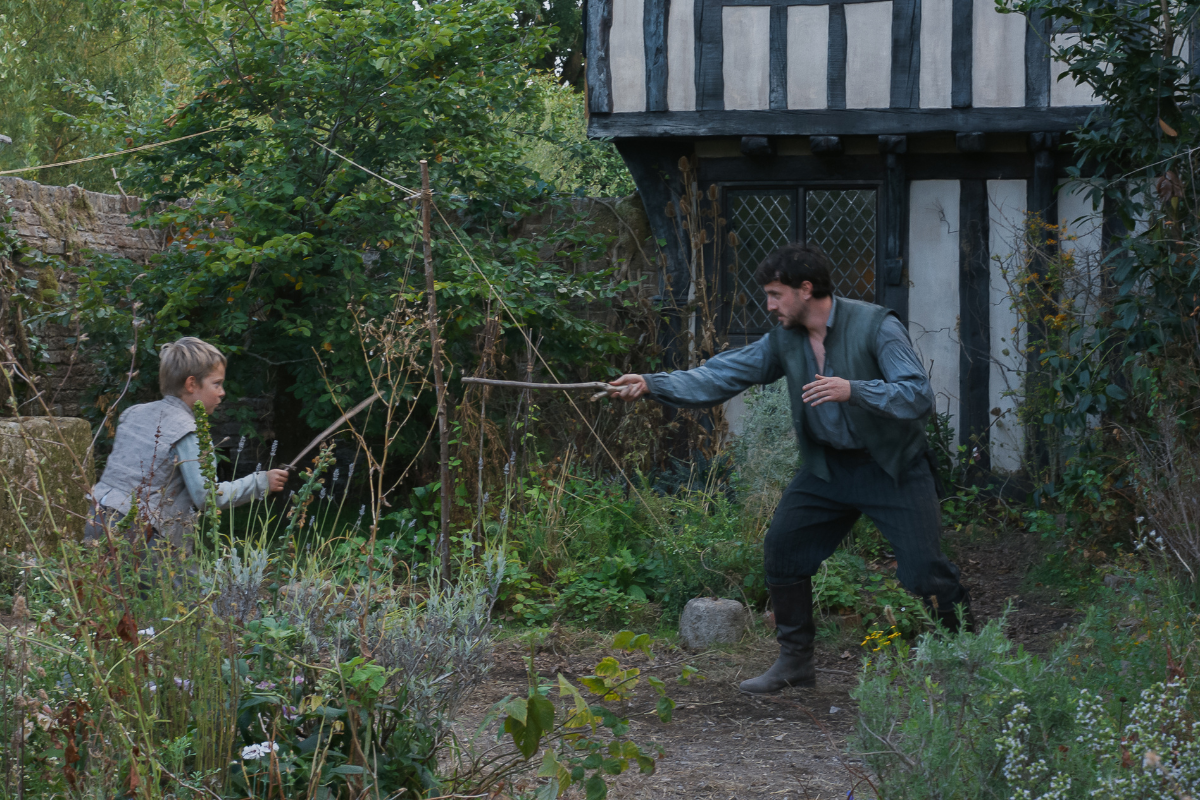Backstory Is Ruining Your Script
Too many writers sabotage their scripts in the first ten pages. Completely destroying any chance of attracting attention with one, simple word. Backstory.
Too many writers sabotage their scripts in the first ten pages. Completely destroying any chance of attracting attention with one, simple word. Backstory. It is a blight on screenwriting, a weed, a crutch, and it needs to stop.
Consider these moments in life. You see a man in bed. Being woken by an alarm, reaching over, turning it off, stretching, stepping out of bed, in a specifically decorated room, and walking into the bathroom.
Now consider seeing this same person on the street. You know nothing about them, never seen them before. As you walk by, they are listening on their smartphone, crying. Sobbing actually.
Which person are you more curious about? The phone guy, right? It doesn’t matter what his bedroom looks like. What matters is why on earth he’s sobbing. What’s going on?
As an ‘audience’ member – you are immediately intrigued. Do you need ten pages of backstory and set up to be intrigued? You do not.
Why The Audience Is More Important Than You
Welcome to the world of too much backstory/set up.
I see FAR too many scripts that take FAR too long to get into the reason we’re all here. Namely, to be entertained by compelling characters doing something we are made to care about.
So many writers as they learn the craft, feel that a script is a segmented document. First you introduce the characters and the setting, fill the audience in on the backstory, who these people are, what they eat, how they dress etc. Then you launch them into an exciting, or emotionally heart-warming/wrenching story. Kind of like a rollercoaster…first the painfully slow climb while you look at the scenery and think about just how high you’re going, then the adventure and fun!
There’s one big problem with that approach. The people who read your scripts step off the roller coaster half way up the first hill.
But surely – you are asking – the more we know a character, the more we care, and you keep saying a script fails if we can’t connect our characters with the audience. So what gives?
I refer back to the dude on the phone, and the definition of ‘connecting characters with the audience’.
Let’s look at it from a dating perspective. Do you read a full biography of someone before you decide if you are attracted to them? Or are you initially intrigued by the way they look, or what they say, which leads you to want to know more?
I believe, based on my own writing, and the thousands of scripts I’ve read, there is one simple reason for this terrible script affliction.
Fear.
Writers can lack confidence. Is the idea interesting to strangers? Are my characters and story compelling? We’ve all thought it – no shame there. But often, that concern manifests into an attempt to overcompensate. If I don’t trust my story, then I’ll take longer to introduce the characters. I’ll minimize risk – if the audience really understands these people, the setting, all the backstory, it gives the subsequent story a much better chance at having an impact. So I’ll linger on what posters the lead character has on their wall. Or what shoes they wear. Or what they eat for breakfast. The audience will love it because I’m establishing character. And we all root for characters we feel we know.
Memo to Studios – July 2023
The thinking makes sense. It’s logically sound. And it’s awful. A script killer.
I’ll tell anyone who listens, for an unsigned writer, the first ten pages of your script are CRITICAL. When you’ve read as many scripts as I have, and every industry person has also, you can pick trends and command of craft insanely quickly. You get about ten pages to show these strangers you have your act together. You have command of craft.
That doesn’t mean everything needs to be blown up, or there needs to be car chases on every page, or searing emotional high points, etc. Ignore whoever says every page has to be ‘compelling’. That’s stupid, unnecessary pressure.
But…filling those ten pages with personal details of your characters, or worse, flashbacks, is death. Filling those pages with scene setting, and establishing everyone’s relationship with everyone else, before you let loose the story dogs – death. Spending even two sentences describing the bedroom decorations when they don’t matter – death.
Why is it death? Because it’s boring. Not important. Why would anyone start telling a story with a whole bunch of relatively unimportant information?
How to avoid death? Be brave. Dive into the story. Get that character crying on the phone. You can fill in any relevant bits as we go. Think of yourself as an audience member. Put yourself in a theatre seat or the couch. Imagine you’re watching. You know what you like, and you know what’s dull.
Don’t waste time establishing genre rules. If it’s sci fi – please don’t describe the color of buttons on the control panel. It’s awesome you see everything that clearly. The production designer will love your input when you shoot.
Avoid stereotypes. Thriller writers – no opening in dark forests on a foggy, moonlit night. Please. Understand we have ALL seen that. And for goodness sake no shot of overdue bills, EVER. If you NEED to tell the audience your character is broke, FIND ANOTHER WAY.
Knowing your characters and setting is important. It helps with authenticity and character development and sense of tone and place. But filling your opening pages with all the stuff you’ve learned, or thought about, does not help your script. The more you think about your script from the perspective of a stranger watching the finished product, the more you will understand we like to be intrigued, to be curious, to be not entirely sure what’s going on.
Drowning us in a sea of backstory will ruin your script. So take a breath, be brave, and leap off the cliff into your story. Lead your audience. Take us on a journey. It’s all we really want.
Learn more about the craft and business of screenwriting and television writing from our Script University courses!
Tim Schildberger is an experienced writer, script coach, author and co-founder of Write LA - an annual screenwriting competition which gets winning writers read by Literary Managers. Tim works with writers to improve their emotional connection with their stories and characters - a crucial element needed to launch industry careers. He’s also a journalist, one of the key members of ‘Borat’, creator of ‘Lawrence of America' for the Travel Channel, host of the podcast ‘Script, Mate!’, and author of popular screenwriting book ‘The Audience and You’ available on Amazon and wherever good books are sold. In his spare time, Tim is a parent, tennis player, and fan of Australian Rules Football. For more of Tim's tips and opinions - Instagram: @writela







